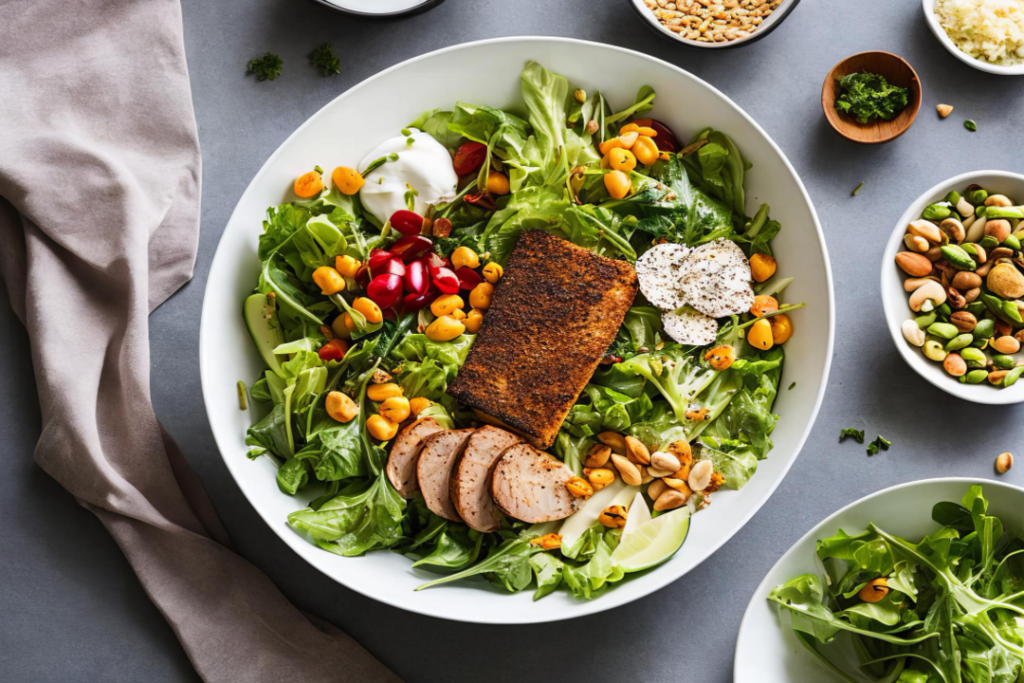Are you tired of the daily struggle to come up with healthy meal ideas and end up resorting to unhealthy takeout or processed foods? Meal planning is the key to eating healthier, saving time, and reducing stress around mealtime. In this guide, we’ll explore practical tips for effective meal planning that will help you stay on track with your health and nutrition goals.
1. Why Meal Planning Matters
Meal planning involves taking the time to decide ahead of time what you’ll eat for each meal and snack throughout the week. By planning your meals in advance, you can ensure that you have nutritious options readily available, making it easier to stick to a healthy eating pattern and avoid impulsive, unhealthy choices.
2. Set Realistic Goals
Start by setting realistic goals for your meal planning efforts. Consider your schedule, cooking abilities, and dietary preferences when planning meals. Aim to incorporate a balance of protein, carbohydrates, healthy fats, fruits, and vegetables into your meals to ensure you’re getting a variety of nutrients.
3. Choose a Planning Method
There are various methods you can use for meal planning, so choose one that works best for you. Some people prefer to plan their meals for the entire week in one sitting, while others may prefer to plan for a few days at a time. Experiment with different approaches until you find what works best for your lifestyle.
4. Create a Master List of Recipes
Compile a list of your favorite healthy recipes, including breakfast, lunch, dinner, and snacks. Keep this list handy for reference when planning your meals for the week. Consider factors such as preparation time, ingredients on hand, and any dietary restrictions when selecting recipes.
5. Schedule Meal Prep Time
Set aside dedicated time each week for meal prep. This could involve chopping vegetables, cooking grains or proteins, and portioning out meals for the week ahead. By prepping ingredients in advance, you can streamline the cooking process and save time during busy weekdays.
6. Mix and Match Ingredients
Get creative with your meal planning by using versatile ingredients that can be used in multiple dishes. For example, roasted vegetables can be added to salads, grain bowls, wraps, or served as a side dish. This allows you to minimize food waste and make the most out of your groceries.
7. Use Batch Cooking
Batch cooking involves preparing large quantities of food at once and portioning them out for future meals. This can be especially helpful for busy individuals or families with hectic schedules. Cook large batches of soups, stews, or casseroles and freeze individual portions for quick and convenient meals.
8. Don’t Forget Snacks
Include healthy snacks in your meal planning to keep hunger at bay between meals. Opt for nutrient-dense options like fruit, nuts, yogurt, or whole-grain crackers with hummus. Pre-portion snacks into grab-and-go containers to make them easily accessible throughout the week.
9. Stay Flexible
While meal planning can help you stay on track with your nutrition goals, it’s essential to remain flexible and adapt to changes in your schedule or preferences. Don’t be afraid to swap out planned meals if you’re not in the mood for them or if you have leftover ingredients that need to be used up.
10. Plan for Dining Out
Include dining out or ordering takeout in your meal planning strategy. Research healthy restaurant options in your area or look for nutritious menu items when dining out. Planning for occasional meals out can help you stay on track with your goals without feeling deprived.
FAQs (Frequently Asked Questions):
Q1: How far in advance should I plan my meals? A1: It depends on your schedule and personal preferences. Some people prefer to plan for the entire week, while others may plan for a few days at a time. Find a planning cadence that works best for you.
Q2: How do I avoid getting bored with meal planning? A2: Keep things interesting by trying new recipes, cuisines, and cooking techniques. Experiment with different ingredients and flavor combinations to keep your meals exciting and enjoyable.
Q3: Can meal planning help me save money on groceries? A3: Yes, meal planning can help you save money by reducing food waste and minimizing impulse purchases at the grocery store. By planning your meals in advance, you can create a shopping list based on what you need, avoiding unnecessary spending.
Q4: What if I have dietary restrictions or food allergies? A4: Meal planning can be adapted to accommodate various dietary restrictions and food allergies. Look for recipes that meet your specific dietary needs or modify recipes as needed to suit your preferences.
Q5: How do I stay motivated to meal plan consistently? A5: Find motivation by focusing on the benefits of meal planning, such as saving time, eating healthier, and reducing stress around mealtime. Experiment with new recipes, involve family members in the planning process, and celebrate your successes along the way.

